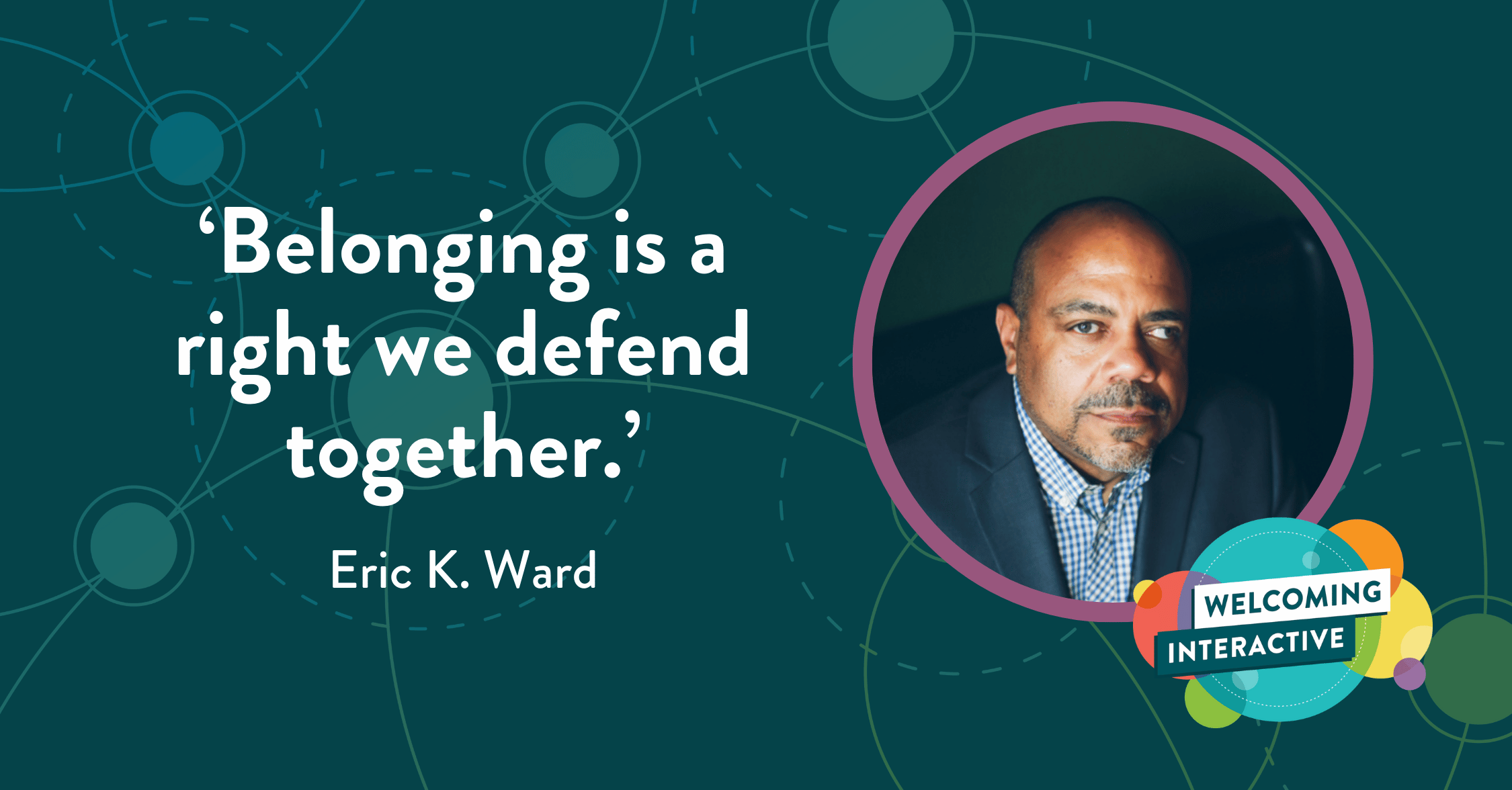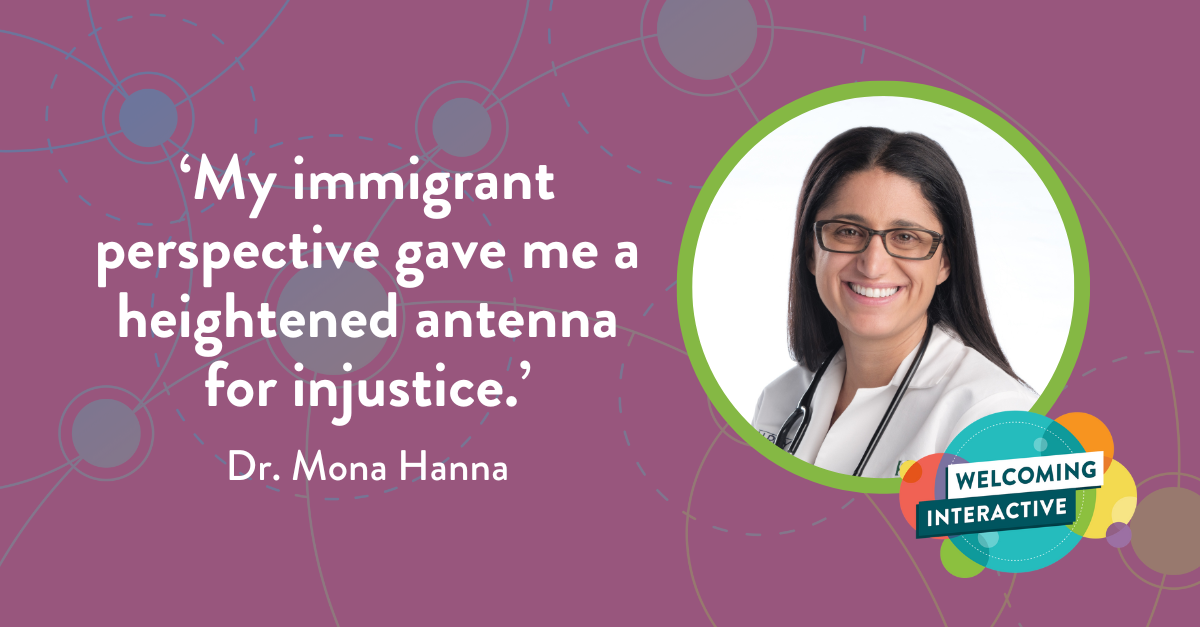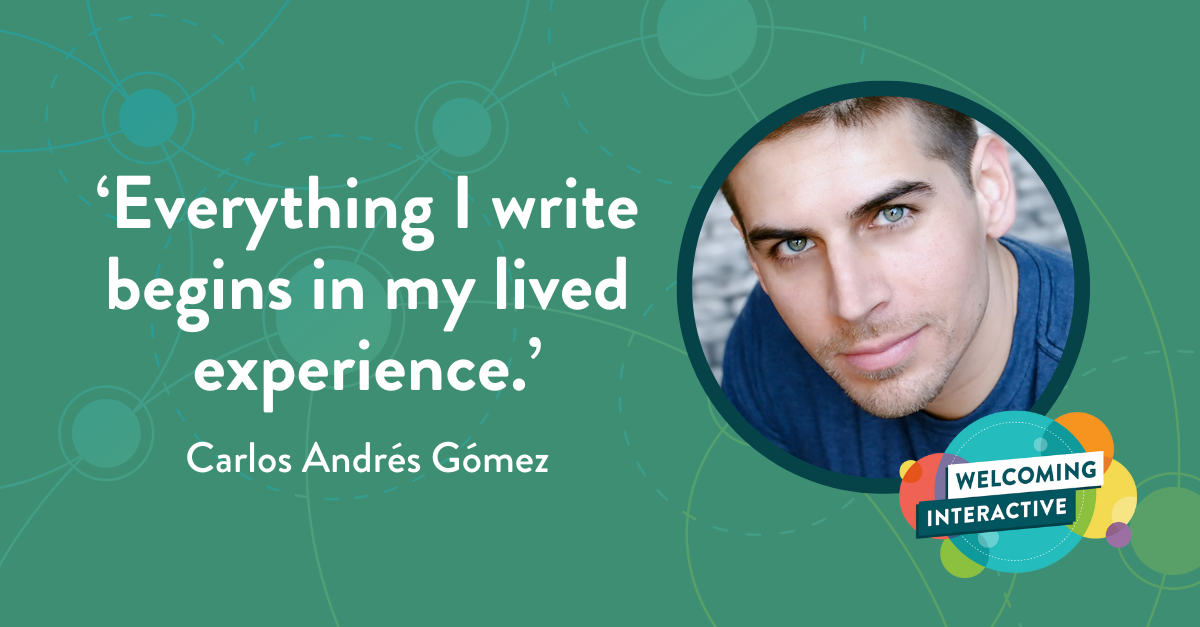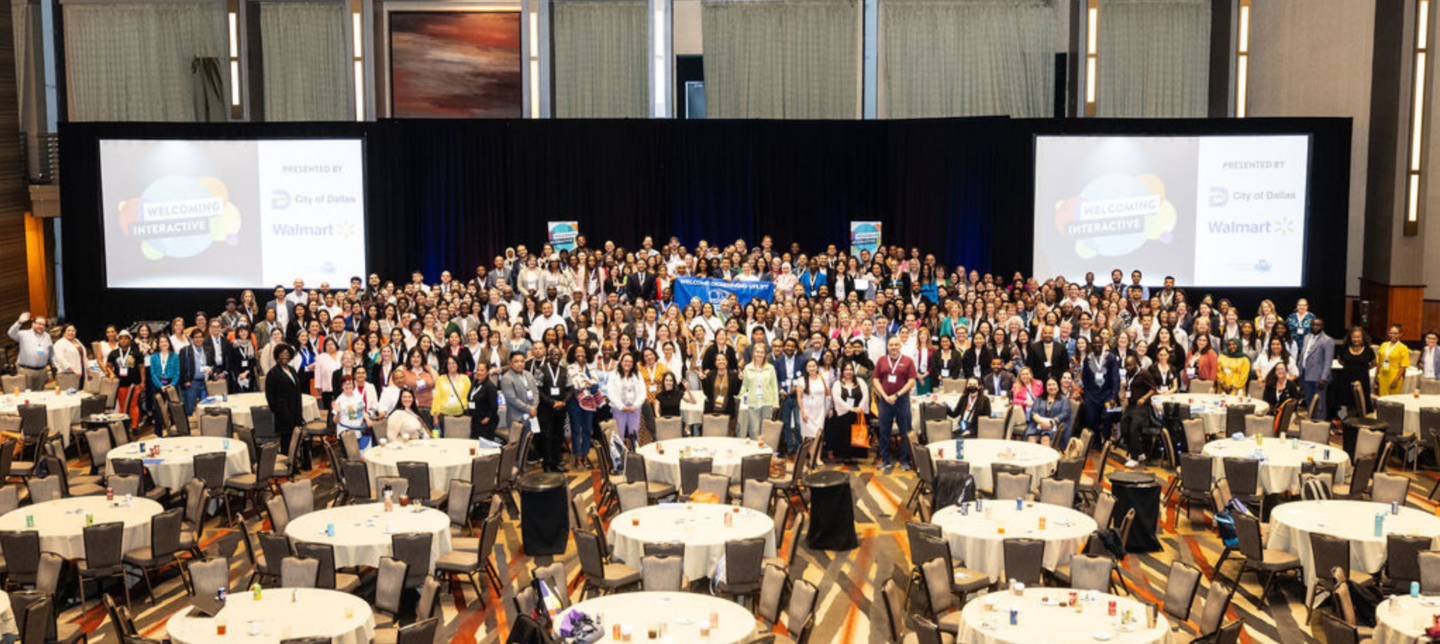
‘Belonging is a right we defend together’: Eric K. Ward at the 2025 Welcoming Interactive
Belonging is under attack—and no one is untouched.
Local and state leaders are leading with their values and displaying courage as they stand up for welcoming and belonging. This can feel isolating. But we can all be braver when we’re more connected and aligned.
At the Welcoming Interactive in Detroit this May, welcomers from across the U.S. and world will come together to strategize on ways to build stronger communities and resist division and fear. Building inclusive communities is the future, and we’re here to ensure no one has to carry that vision alone.
On Thursday, May 22 we’ll be bringing Eric K. Ward to the stage —a nationally recognized civil rights leader, strategist, and storyteller whose work bridges grassroots activism, governance, philanthropy, and pop culture. As Executive Vice President of Race Forward and Senior Fellow at Southern Poverty Law Center, he leads efforts to dismantle systemic racism and advance inclusive democracy.
Join us for a keynote that will reimagine what inclusion looks like in practice, as Eric shares wisdom about why welcoming is strategic, belonging is a right, and how we can find the courage to transform our values into reality. Preview his insights below!
Without spoilers, what can attendees expect to hear from you at the Welcoming Interactive?
You can expect something honest, grounded, and disruptive in the best sense. I’m not coming to offer comfort—I’m coming to offer clarity. We’ll explore how authoritarianism thrives on fear and isolation, and how the work of welcoming isn’t soft—it’s strategic. True inclusion isn’t about helping people “fit in.” It’s about changing the systems that make anyone feel like they don’t belong in the first place.
Whether you're new to this work or have been at it for decades, I want to challenge how we think about power, partnership, and the rhythms that hold a community together. I’ll be talking about everyday courage, the kind of joy that unsettles injustice, and what it means to move from transactional solidarity to transformative communities.
It won’t be a lecture. It’ll be a call to realign—to remember what we already know but sometimes forget: that belonging isn’t a favor we extend. It’s a right we defend together.
How does your personal story influence your work?
I’m not an immigrant—but I’ve spent my life navigating systems that treat people like they don’t belong unless they shrink, comply, or disappear. As a Black man raised in working-class punk spaces and civil rights movements, I’ve felt what it’s like to be seen as a threat before being seen as a neighbor. That shapes everything I do.
I learned early that survival isn’t just personal—it’s political. And dignity isn’t granted from above—it’s built in community. My story is rooted in contradiction: silence and music, fear and defiance, invisibility and resistance. That’s where I learned the deeper truth—that authoritarianism doesn’t start with violence, it starts with erasure.
So I do this work because I’ve lived what happens when people are pushed to the margins. And I’ve also seen the power of what’s possible when we fight for each other—not out of charity, but out of shared fate. That’s the energy I bring. That’s the story I live.
What advice do you have for people who want to foster welcoming, equity, and belonging in their communities?
Stop thinking of belonging as a feeling. It’s not. It’s a structure. A rhythm. A practice. And every day, you’re either reinforcing systems of control or building something more human. That’s the choice.
Belonging isn’t a favor we extend. It’s a right we defend together.
So here’s the advice: disrupt isolation. Make power visible. Create joy where fear is expected. Don’t just open the door—change the room. Build spaces where immigrant communities aren’t just welcomed—they lead, shape, and challenge. That’s how you move from inclusion to co-ownership.
And listen—deeply. Not just to words, but to what people are protecting, what they’ve lost, and what they’re dreaming toward. When you treat people as if they’re already part of the solution, most rise to meet that expectation.
This work isn’t about helping people “make it.” It’s about refusing to let any system define who’s worth showing up for. And if you can commit to that every day—in policy, in conversation, in conflict—you’re not just creating belonging. You’re building something that can outlast fear.




